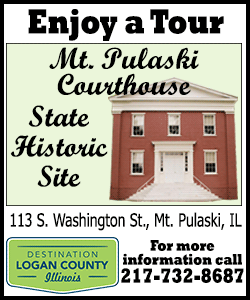|
 Former officials and scholars caution that the list of 21 advisers
announced ahead of Bush's first big foreign policy speech on
Wednesday was preliminary and would not necessarily form the core of
a third Bush presidency. It is also common for leading Republican
and Democrat presidential candidates to lean heavily on experienced
hands from former administrations - in this case a mix of party
hawks and pragmatists. Former officials and scholars caution that the list of 21 advisers
announced ahead of Bush's first big foreign policy speech on
Wednesday was preliminary and would not necessarily form the core of
a third Bush presidency. It is also common for leading Republican
and Democrat presidential candidates to lean heavily on experienced
hands from former administrations - in this case a mix of party
hawks and pragmatists.
But by including 19 advisers who served under President George W.
Bush, or his father, President George H.W. Bush, Jeb risks criticism
during the 2016 campaign that he will represent a continuation of
his family's legacy on foreign policy.
Among his advisers is Paul Wolfowitz, a former deputy U.S. defense
secretary who was a lead architect of the 2003 invasion of Iraq and
once famously asserted that Iraq would be able to finance its own
post-war reconstruction.
And he included John Hannah, a top aide to former Vice President
Dick Cheney and Bush deputy national security adviser Stephen
Hadley. But he also picked James A. Baker III, Secretary of State
under George H.W. Bush who co-chaired a blue-ribbon panel that in
2006 called the situation in Iraq "grave and deteriorating" and
recommended a phased withdrawal of U.S. troops. (Factbox on the
advisers:)
 Republicans said that showed how Jeb was taking a broad approach,
casting a wide net across party views as he presents himself as
tougher on foreign threats than President Barack Obama ahead of
party primaries that start early next year.
"He's taking a big tent approach," said Peter Feaver, a Duke
University political science professor who served in the younger
Bush's White House.
Jeb Bush could have declared "if you worked for my brother, you
won't work for me. That would have been a dumb choice," Feaver said.
"It reinforces a cartoon critique that the Bush administration was a
foreign policy disaster."
Democrats characterized Bush's foreign policy plans as mirroring
that of George W. Bush, who launched the war in Iraq that became
deeply unpopular. The Democratic National Committee said in a
statement that Bush was relying on advisers who "were the architects
of George W. Bush’s cowboy foreign policy agenda that damaged the
country’s reputation abroad."
Democrats accuse George W. Bush of giving rise to the current
turmoil in the region with the 2003 U.S.-led invasion of Iraq over
weapons of mass destruction that were never found. The Bush
administration said the war was justified by the available
intelligence and the security threat that Iraq posed.
Jeb Bush, a former Florida governor, faces a unique foreign policy
challenge among Republican candidates. He needs to quickly build up
foreign policy credibility and show how he would be more assertive
abroad, while avoiding getting entangled in the presidential
legacies of his father and brother.
[to top of second column] |

His speech on Wednesday offered a vision of a more robust U.S.
foreign policy as he insisted: "I'm my own man." But he stopped
short of offering specifics on how to do it.
EARLY DAYS
One of his advisers, Otto Reich, a former assistant secretary of
state and U.S. ambassador to Venezuela, stressed the nascent nature
of Bush's national security team, saying the group had not met to
plan strategy.
"It's very early," he said. Bush "just reached out to a few people
that he's known for a while."
Also present in the team are two former CIA directors: Porter Goss
and Michael Hayden. Hayden, a retired general and former National
Security Agency director, has vigorously defended torture-like
interrogation techniques used on detainees after the Sept. 11, 2001
terrorist attacks.
This suggests Jeb Bush is "not someone who's going to try to uncover
problems and abuses of the CIA, or limit its power really," said
James Mann, author of books on both the Obama and George W. Bush
foreign policy teams.
Jeb Bush's advisers include two former officials focused on Latin
America, Reich and Roger Noriega, who are on record strongly
opposing Obama's diplomatic opening to Cuba. Bush himself harshly
criticized the policy on Wednesday.
Feaver stressed that any presidential candidate compiles three lists
of national security advisors: one of veteran officials who can
provide "wise counsel," a second larger "army" of individuals who
act as proxies and prepare decision papers on specific issues, and
an inner circle of decision-makers.
"What was released today was that first list, not the other two
lists," he said.
(Additional reporting by Steve Holland. Editing by Stuart
Grudgings.)
[© 2015 Thomson Reuters. All rights
reserved.]
Copyright 2015 Reuters. All rights reserved. This material may not be published,
broadcast, rewritten or redistributed.

 |